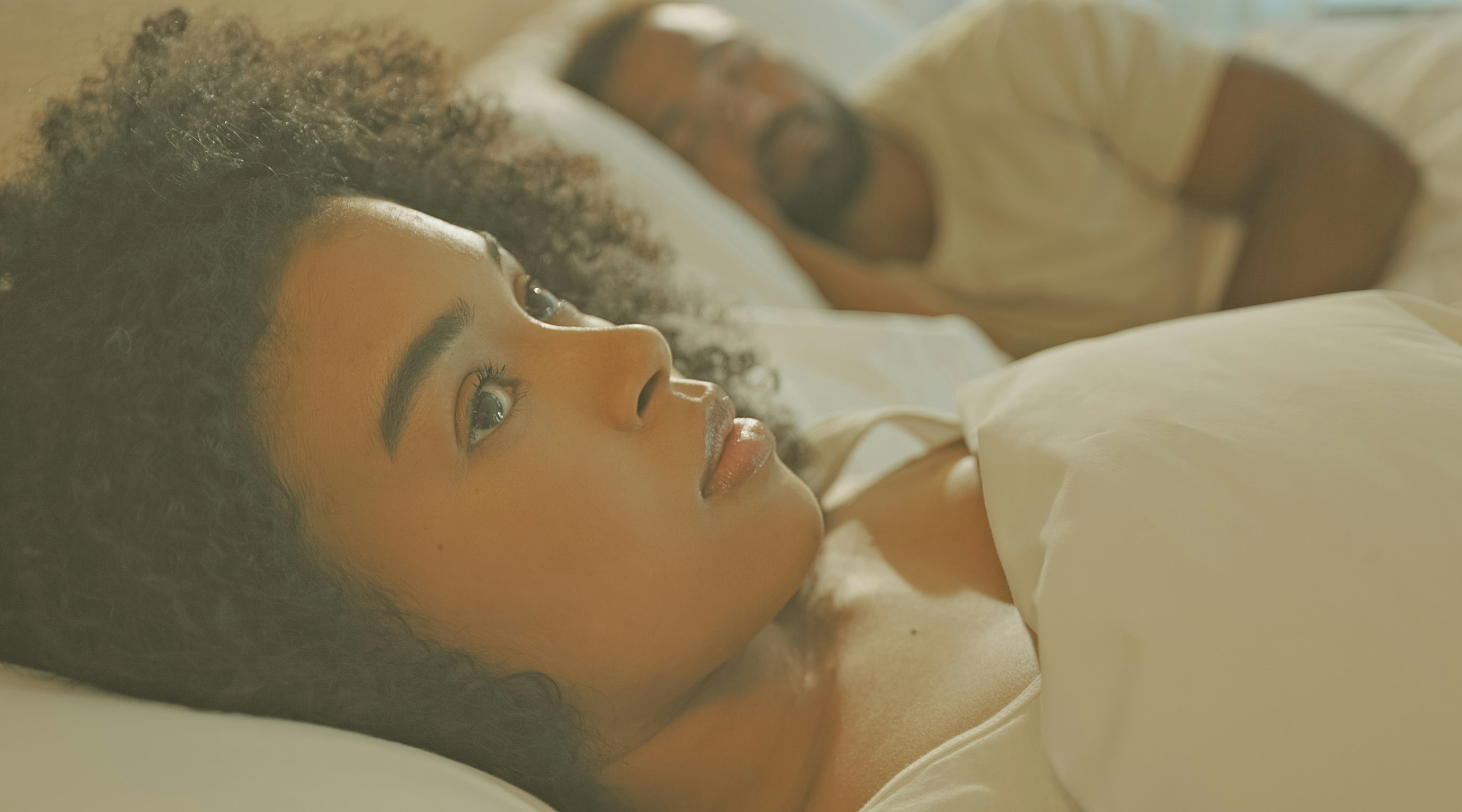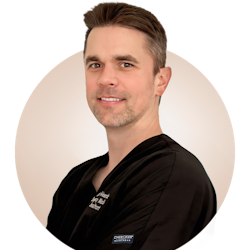Exploring the benefits of medical cannabis for sleep disorders
9 min read
Emily Ledger
The importance of sleep
According to recent research, almost three-quarters of UK adults (more than 37 million people) do not get the recommended seven to nine hours of sleep a night. Moreover, around one in seven (14%) reportedly survive on less than five hours of sleep a night.
These findings, published in the 2022 ‘Need for Sleep’ study of 4,000 UK adults, are worrying considering the association between poor sleep and the risk of health issues such as heart problems and chronic diseases. However, for individuals living with sleep disorders, getting to and staying asleep can be particularly troublesome.
Contents
What are sleep disorders?
Sleep disorders - also called sleep-wake disorders - are defined as problems with the quality, timing, and amount of sleep. In essence, this refers to conditions that disturb normal sleep patterns. Sleep disorders are usually defined by the following categories:
- Insomnia: A condition that can make it difficult to fall asleep or stay asleep.
- Sleep-disordered breathing: Conditions that affect breathing during sleep, such as sleep apnoea.
- Central disorders of hypersomnolence: Conditions that cause excessive daytime sleepiness, even when having adequate sleep; examples include narcolepsy and idiopathic hypersomnia.
- Circadian rhythm/sleep-wake disorders: Occur when the body’s circadian “clock” doesn’t work correctly.
- Parasomnias: A disorder that causes unusual physical events or experiences that disrupt sleep.
- Sleep-related movement disorders: A category of conditions in which repetitive movements interfere with sleep; examples include restless leg syndrome and periodic limb movement disorder.
Insomnia - the most common sleep disorder
Insomnia is the most common sleep disorder, believed to affect around one in three people in the UK. It can occur in irregular episodes - for example, when you experience symptoms for a few days or weeks, but it typically resolves on its own. However, many people can experience insomnia for months and even years at a time.
Insomnia is usually described as regularly experiencing problems when getting to sleep or staying asleep. The condition is also associated with daytime impairments such as fatigue, difficulty concentrating or problems with memory, impaired social or work performance, excessive daytime sleepiness, and decreased energy or motivation.
Individuals may receive a diagnosis of long-term insomnia if they experience at least one of these symptoms, in addition to sleep symptoms, at least three times per week for at least three months.
Managing insomnia
Management of insomnia can differ depending on the cause of the condition. In secondary insomnia - when the condition may be attributable to an underlying medical or psychological condition - treatment will typically focus on addressing these causes. Treating primary insomnia - where symptoms occur independently - can be more difficult.
Narcolepsy
Narcolepsy is a central disorder of hypersomnolence that can prevent an individual from choosing when to sleep or wake. It occurs when the brain is unable to regulate normal sleep patterns. Narcolepsy is a relatively rare condition, believed to affect around 30,000 people in the UK.
Symptoms of narcolepsy can include:
- Excessive daytime sleepiness
- Sleep attacks (falling asleep suddenly and without warning)
- Cataplexy (temporary loss of muscle control which may be triggered by emotions)
- Sleep paralysis (inability to move or speak when sleeping or waking up)
- Excessive dreaming and waking
The main cause of narcolepsy is a lack of hypocretin - a brain chemical that regulates wakefulness. Other possible triggers may include hormonal changes (such as those that occur during puberty or menopause), psychological stress, and some infections and medicines.
Managing Narcolepsy
There is no cure for narcolepsy, but some of it’s associated symptoms can be managed with medicines and lifestyle changes. For example, individuals with narcolepsy may be prescribed a central nervous system stimulant such as Modafinil. If this is not effective, other medications, including amphetamine-like stimulants and antidepressants may be considered.
Restless leg syndrome
Restless leg syndrome (RLS) - also known as Willis-Ekbom disease - is a neurological disorder that causes an overwhelming urge to move the legs (and occasionally also the arms). It can also cause unpleasant or uncomfortable sensations which may be temporarily relieved by moving the legs. RLS is classified as a sleep disorder, as symptoms are triggered by resting and attempting to sleep.
The exact cause of RLS is not always understood; however, it may be linked to underlying conditions such as iron deficiency anaemia and kidney failure. Some believe it may also be linked to how the body handles dopamine.
Managing restless leg syndrome
Treatments for RLS can depend on the cause of the condition. For some patients, treating the underlying conditions associated with RLS may be sufficient to prevent symptoms. However, in more severe cases, patients may require medications to regulate the levels of dopamine and iron in the body.
Sleep apnoea
Sleep apnoea is a sleep disorder that causes patients to stop breathing while asleep. Other sleep symptoms include making gasping, snorting, or choking noises while asleep which may cause you to wake up a lot. It may also cause daytime symptoms such as fatigue, finding it hard to concentrate, mood swings, and headaches.
There are two types of sleep apnoea:
- Obstructive sleep apnoea: The most common type, occurs when the upper airways become blocked many times when you sleep, causing a reduction or complete cessation of airflow.
- Central sleep apnoea: Occurs when the brain doesn’t send the signals for you to breathe.
Managing sleep apnoea
Lifestyle changes, such as losing weight, giving up smoking, or reducing alcohol intake can sometimes help to prevent the symptoms of sleep apnoea. However, in some cases, patients may need to use a CPAP machine (a machine that pumps air into your nose or mouth while you sleep) or a gum shield to hold the airways open. Surgery, such as removing the tonsils, may also be considered.
Medical cannabis and sleep
As medical cannabis has become increasingly available in the UK and other countries, more patients are interested in how cannabis-based medicines could help manage a range of conditions - including sleep disorders.
Compounds found in cannabis - called cannabinoids - interact with several receptor systems in the human body. The most prominent of these interactions is believed to be with the endocannabinoid system (ECS). The ECS has been found to play a vital role in many important physiological functions, including sleep regulation. In recent years, several studies have aimed to explore the potential of medical cannabis for sleep disorders.
What does the evidence say?
Research into the potential of medical cannabis in managing sleep disorders has been on the rise in recent years. The majority of these studies have focused on medical cannabis and insomnia, with some yielding promising results.
Medical cannabis for insomnia
A 2023 placebo controlled study tested medical cannabis (cannabis oil containing 10 mg/ml THC and 15 mg/ml CBD) against a dummy drug in adults with insomnia. The researchers found that the quality of sleep improved overall by up to 80% in the cannabis treatment group, with patients also reporting higher daily functioning.
Medical cannabis for other sleep disorders
These findings built on those of a 2022 review of patients using medical cannabis for sleep disorders. Following medical cannabis initiation, a reported 39% of participants were able to reduce or completely discontinue other prescription medications for sleep. 71% also reported an improvement in their sleep or related condition.
While clinical evidence is currently lacking considering medical cannabis for sleep apnoea, restless leg syndrome, and narcolepsy, anecdotal reports that it may be beneficial for some patients. In RLS, the antinociceptive potential of cannabis may be useful in managing pain or discomfort associated with the condition, making it easier for patients to fall asleep.
Moreover, medical cannabis may be beneficial in managing comorbid conditions that often occur alongside sleep disorders, such as anxiety and depression. This can be seen in the results of a 2019 case series that included 72 patients who had primary concerns of anxiety or poor sleep, where significant improvements in both anxiety and sleep scores were reported.
The potential of medical cannabis for treating sleep disorders may be linked to the properties of THC and CBD in combination, in addition to other cannabis-derived compounds.
We spoke to Releaf doctor and medical cannabis prescriber, Dr Alex Van Heerden, who said:
"Medical Cannabis has been shown to be an excellent treatment option for insomnia, as it can help to improve sleep quality by interacting with the body’s endocannabinoid system, which plays a role in regulating sleep and wake cycles. The two key plant chemicals contained in cannabis are Tetrahydrocannabinol (THC) and cannabidiol (CBD). When they enter the system, THC can have sedative effects that reduce the time it takes to fall asleep by promoting relaxation, while CBD exhibits calming and anxiolytic properties that help ease anxiety and stress, which are common contributors to sleep disturbances. Cannabis has also been noted for its pain-relieving and anti-inflammatory properties, which may help individuals suffering from chronic pain to achieve deeper, more restorative sleep."
Final thoughts
Sleep disorders can present significant difficulties to the individuals who live with them. In addition to causing daytime tiredness and fatigue, sleep disorders can cause cognitive impairment and increase the risk of developing other health conditions, including hypertension, diabetes, obesity, and depression.
As both patients and clinicians seek effective alternatives to manage the impact of sleep disorders, medical cannabis is becoming increasingly popular. Cannabis-based medicines may now be prescribed in the treatment of some sleep disorders when other treatments have failed to achieve symptom relief.
Share article
Did you like this article?
It is important to seek medical advice before starting any new treatments. The patient advisors at Releaf are available to provide expert advice and support. Alternatively, click here to book a consultation with one of our specialist doctors.
Elevate your wellness with medical cannabis
Get comprehensive care, convenience, and confidence with an all-in-one treatment plan.
Am I eligible?Authors
Emily, an accomplished content writer with a specialisation in cannabis and alternative health, leverages her five years in the sector to enhance education and diminish stigma around medicinal cannabis use.
meet our specialist
Editorial Policy
All of our articles are written by medical cannabis experts, guided by strict sourcing guidelines, and reference peer-reviewed studies and credible academic research. Our expert clinical team and compliance specialists provide valuable insights to ensure accuracy when required. Learn more in our editorial policy.
Need more help?











